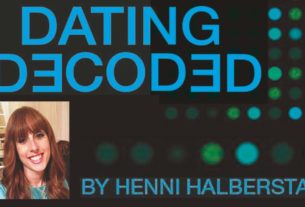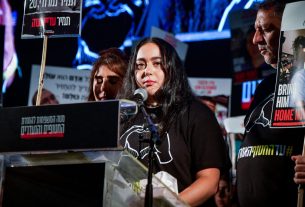In this week’s parshah we read about Avraham’s purchase of Me’aras HaMachpelah. Prior to any negotiations Avraham said to the bnei Cheis, “Ger v’soshav anochi…” – I am a stranger and a resident… (Bereishis 23:4). Rashi quotes a medrash that explains the apparent paradox in Avraham’s words as follows: Avraham was telling the bnei Cheis to treat him like a stranger and sell the property to him, and, if not, he will be forced to act as a resident and take what is rightfully his – for Hashem has already said to Avraham that this land will belong to his children.
The meforshim are bothered by this interpretation and ask the following question: In parshas Lech Lecha we learned about the dispute between Avraham and Lot’s shepherds. Rashi explains that Lot’s shepherds were resha’im and would allow their animals to graze in private property. Avraham’s shepherds chastised them for this, as it was stealing. In defense Lot’s shepherds responded that what they were doing was not stealing, since Hashem gave this land to Avraham and Lot was his only inheritor (at the time). Rashi concludes by quoting the end of that pasuk, …veha’Canna’ani veHa’prizi az yoshev ba’aretz – and the Canna’ani and the Prizi were still occupying the land, indicating that Avraham had not yet acquired the land and therefore allowing the animals to graze in private property was indeed stealing.
<!–
Publisher #16: JewishPress.com
Zone #113: Comment Banner / (02) / News
Size #15: Banner 468×60 (Comments and Mobile) [468×60]
–> ‘); _avp.push({ tagid: article_top_ad_tagid, alias: ‘/’, type: ‘banner’, zid: ThisAdID, pid: 16, onscroll: 0 });
The two explanations from Rashi seem to contradict one another. In this week’s parshah he says that Avraham could take the land as its rightful owner, and in parshas Lech Lecha he said that Avraham had not yet acquired the land.
The Chizkuni and the Sifsei Chachamim both suggest the following answer: Hashem promised Avraham that his children would inherit the land of Eretz Yisrael. In parshas Lech Lecha, Avraham had not yet had any offspring; therefore, Hashem’s promise did not come into effect. In parshas Chayei Sarah, Yitzchak had already been born. Thus, Hashem’s promise was applicable, and Avraham could demand the land as its rightful owner.
My Rebbe, Rav Shmuel Berenbaum, zt”l, suggested another answer to this question, based on an explanation from the Malbim on a different point in this episode. The Malbim explains that Avraham Avinu intended to accomplish more than merely acquiring a piece of land. He wanted to teach the public that there was an afterlife. The general consensus at that time was that after one dies, there is nothing else. Avraham wanted to use this opportunity to teach the people otherwise. With this the Malbim explains why Avraham informed them of his intentions with the field in the first place, and continuously stressed and reiterated several times that he is acquiring the land for a burial. The reason why we pay respect and ensure a proper burial is because there is an afterlife. Avraham attempted to instill in the bnei Cheis the belief that there is an afterlife.
Rav Shmuel proved from a Gemara (Gittin 47a) that there are two separate levels of acquisition: the monetary aspect and the level of acquisition that affects issurim and mitzvos. For example, if a non-Jew acquires land in Eretz Yisrael he completely owns the land as far as monetary issues are concerned. This enables him to do whatever he pleases to the land. However, regarding terumah and ma’aser and other mitzvos, the land is not considered owned by a non-Jew, which would exempt it from those mitzvos. Rather it is obligated in these mitzvos, since the non-Jew cannot acquire the land on the level that affects mitzvos.
Now we can understand the seemingly contradictory explanations from Rashi. Regarding monetary issues, Avraham had not yet acquired the land. However, regarding mitzvos, Avraham had already acquired Eretz Yisrael. In parshas Lech Lecha, Rashi was addressing a monetary issue, i.e. whether one may allow his cattle to graze in someone else’s field. In that regard Rashi explained that the land belonged to the current residents of the land, as Avraham had not yet acquired the land.
In this week’s parshah the issue at hand was relevant to mitzvos. As explained by the Malbim, Avraham was using this acquisition as a means to teach the bnei Cheis to believe in an afterlife. Thus, Avraham was able to invoke his property rights as the matter pertained to mitzvos.
How appropriate it is that on the week that we read the parsha where Avraham acquired Mearas Hamachpela, which is in Chevron, situated in the “West Bank”, the Trump administration reversed the Obama administration’s stance on Israeli settlements. Secretary of State, Mike Pompeo announced on Monday that the Trump administration recognizes that Israeli settlements are consistent with international law. Since 1981 US policy was to treat it as such and only in 2016 did the Obama administration reverse US policy and consider it inconsistent with international law. This week the Trump administration once again did the right and difficult thing by recognizing the legality of the settlements.
My fellow brothers and sisters, for this and many similar courageous acts president Trump deserves our support. May God continue to give president Trump the courage and strength to continue to support Israel in the face of the fierce opposition we know exists. Amen.
‘);
_avp.push({ tagid: article_top_ad_tagid, alias: ‘/’, type: ‘banner’, zid: ThisAdID, pid: 16, onscroll: 25 });




